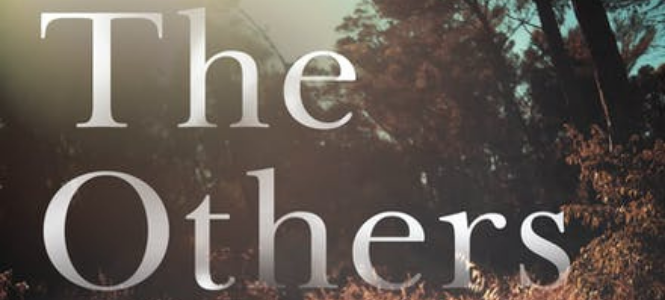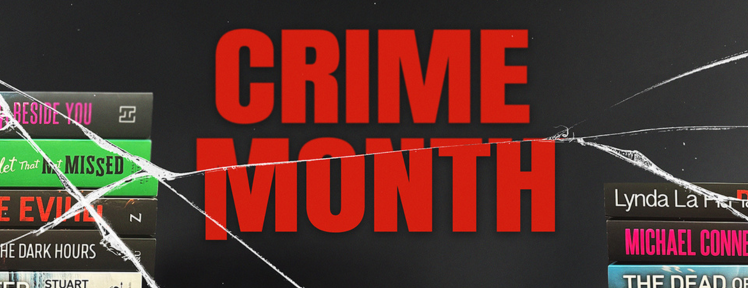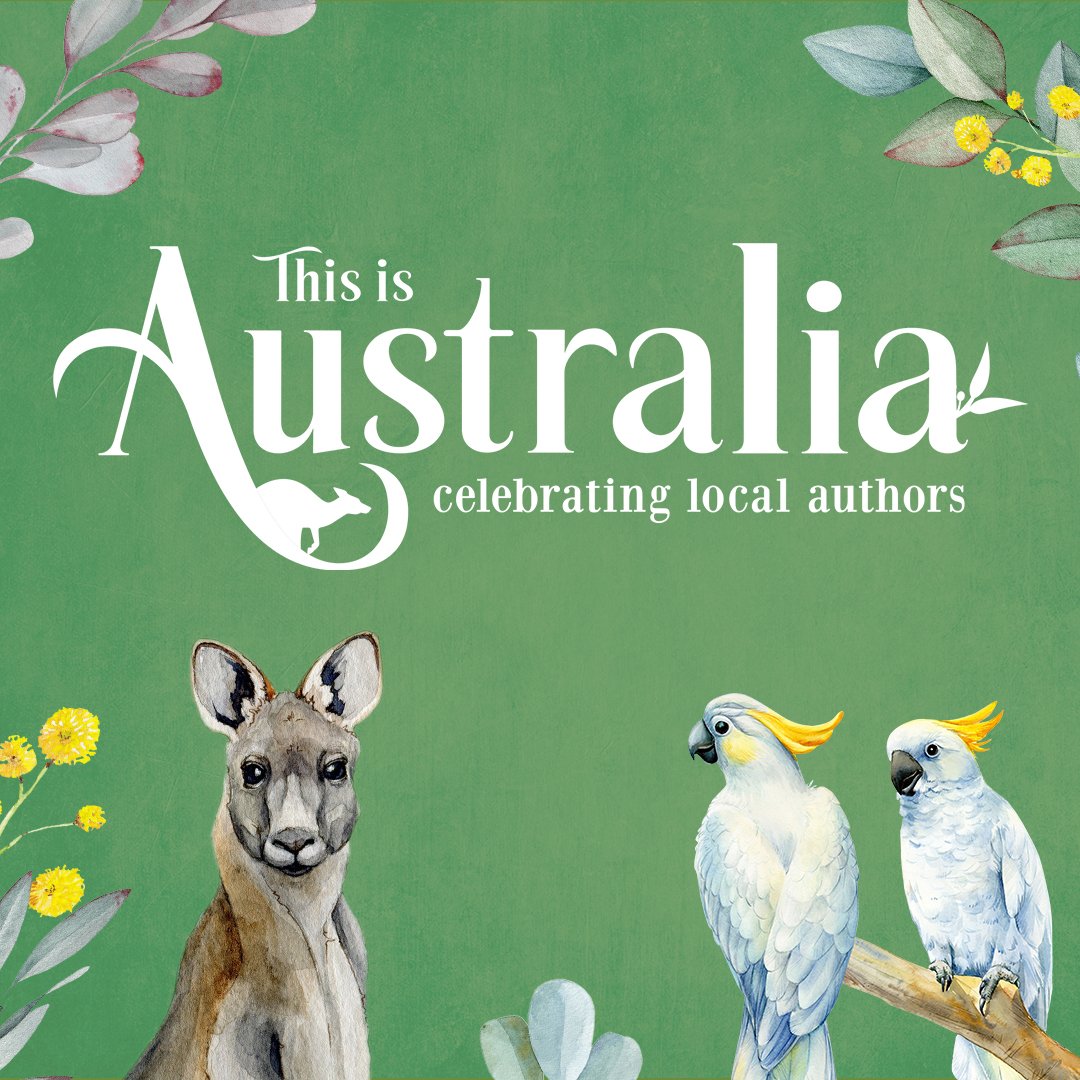Mark Brandi is an Australian author. His bestselling novel, Wimmera, won the coveted British Crime Writers’ Association Debut Dagger, and was named Best Debut at the 2018 Australian Indie Book Awards. It was also shortlisted for the Australian Book Industry Awards Literary Fiction Book of the Year, and the Matt Richell Award for New Writer of the Year. His second novel, The Rip, was published to critical acclaim by Hachette Australia in March 2019. Mark graduated with a criminal justice degree and worked extensively in the justice system, before changing direction and deciding to write. Originally from Italy, he grew up in rural Victoria. Mark now lives in Melbourne and his latest novel is The Others.
Today, Mark Brandi is on the blog to answer our Ten Terrifying Questions! Read on …
 1. To begin with why don’t you tell us a little bit about yourself – where were you born? Raised? Schooled?
1. To begin with why don’t you tell us a little bit about yourself – where were you born? Raised? Schooled?
I was born in Ascoli Piceno in the Le Marche region of Italy, but I was raised in a country town in north-western Victoria. It was a great place to grow up. There was a lot of freedom to explore the natural world, which I think has helped inform my latest book, The Others, as well as my first novel, Wimmera.
Much of my childhood was spent in the pub my family owned. It was a unique experience, and I met so many characters from all walks of life. Looking back on it, I think it’s really helped my writing.
I went to school locally, so I never experienced city life until adulthood.
2. What did you want to be when you were twelve, eighteen and thirty? And why?
At twelve I wanted to be lawyer, which was the product of watching the TV show LA Law as a kid, and thinking it all looked pretty glamorous. I went on to study law as an eighteen year old, but dropped out when the going got tough. I then worked in hospitality for years, until I eventually completed a criminal justice degree.
At thirty, I’d just finished working as a political adviser in the corrections portfolio. It was a fascinating experience (and a lot of what I learned crept into my first book, Wimmera), but I felt at a bit of a crossroads. It took a couple more years, and further career missteps, for me to pursue creative writing. It was the best decision I’ve ever made.
3. What strongly held belief did you have at eighteen that you don’t have now?
That I was bullet proof! I did a lot of risky things back then (and through my twenties) which could have easily killed me. I think I have a better sense of my own mortality nowadays.
4. What are three works of art – this could be a book, painting, piece of music, film, etc – that influenced your development as a writer?
Cormac McCarthy’s The Road had a huge impact on me. It was an experience to read that novel – the book dissolved, the author disappeared, and I was inside that world with the father and son. Looking back, it was a definite influence on my new novel, The Others.
I’m not a big film buff, but probably one of my favourites is Rosemary’s Baby. I must’ve have seen it dozens of times. It’s as much about the claustrophobic apartment and creepy-as-hell atmosphere as anything else, and it impressed upon me the importance of setting.
Music-wise, I’m a tragic Radiohead fan. What I love most about their work, aside from their willingness to experiment, is they leave room for the listener to interpret and experience their music in their own way. I try to bring a similar sense of space to my own writing.
5. Considering the many artistic forms out there, what appeals to you about writing a novel?
Writing has always been the form that flows most easily for me, though I do like to draw sometimes (there are some illustrations in The Others).
I like the singularity of focus that a novel requires – it’s a huge commitment to go inside that world and try to make it real for readers. I love it, and wouldn’t wish for a different career, but it can also be very draining.
‘I like the singularity of focus that a novel requires – it’s a huge commitment to go inside that world and try to make it real for readers.’
6. Please tell us about your latest novel!
The Others is the story of a young boy, Jacob, who is living with his father on a remote property in the middle of the wilderness. For his eleventh birthday, the father gives Jacob a diary, and it’s in this form that the story’s told.
Over the coming weeks and months, we see Jacob’s interactions with the natural world, but also his observations about his father who becomes increasingly protective, warning of dangers outside their land.
Jacob’s curiosity eventually gets the better of him, however, and he then makes a shocking discovery that makes him question everything he’s been told.
7. What do you hope people take away with them after reading your work?
I don’t like to be too prescriptive about how people interact with my work. I just hope they find it an immersive, compelling read, and that the story and its characters might linger with them after they turn the final page.
8. Who do you most admire in the writing world and why?
I love US writer’s Willy Vlautin’s work. He brings such love and humanity to his characters.
9. Many artists set themselves very ambitious goals. What are yours?
My goal when writing is to do justice to the characters and their story – they always feel so very real to me.
10. Do you have any advice for aspiring writers?
It’s not sexy, but persistence is the main thing. You have to be patient, and be willing to work hard and redraft your writing until you’ve squeezed out every last drop.
Even though it can be tough going sometimes, you have to enjoy the process. If not, it could feel like long and painful torture.
Thank you for playing!
—The Others by Mark Brandi (Hachette Australia) is out now.

The Others
On his eleventh birthday, Jacob's father gives him a diary. To write about things that happen. About what he and his father do on their farm. About the sheep, the crop, the fox and the dam. But Jacob knows some things should not be written down. Some things should not be remembered.
The only things he knows for sure are what his father has taught him. Sheltered, protected, isolated. But who is his father protecting him from? And how far will his father go to keep the world at bay?...






 What do we know about the Boy Swallows Universe Netflix show?
What do we know about the Boy Swallows Universe Netflix show?  Booktopia’s top thrilling fiction picks for Crime Month
Booktopia’s top thrilling fiction picks for Crime Month  Booktopia’s Top First Nations Book Recommendations for 2023
Booktopia’s Top First Nations Book Recommendations for 2023
Comments
No comments